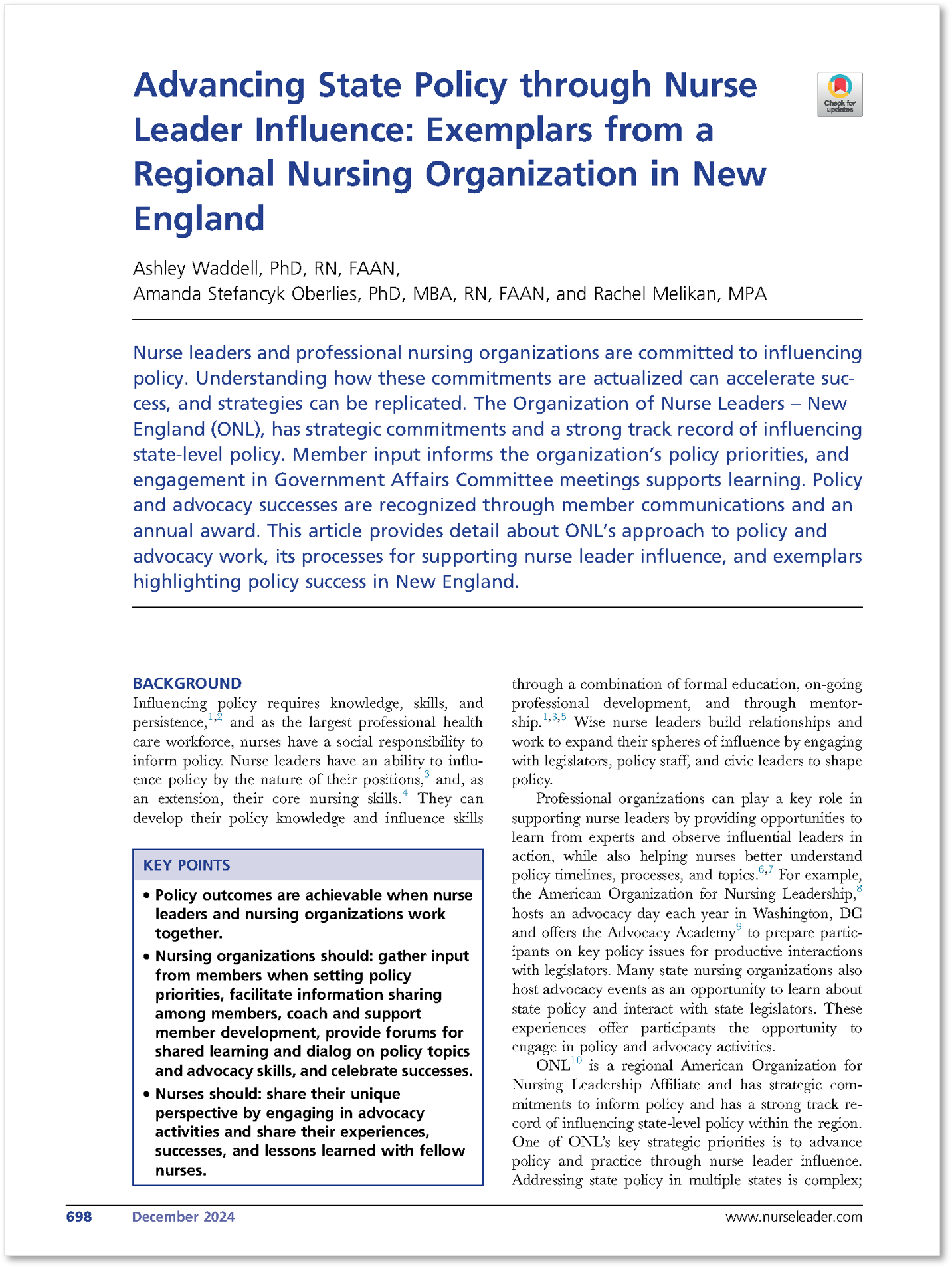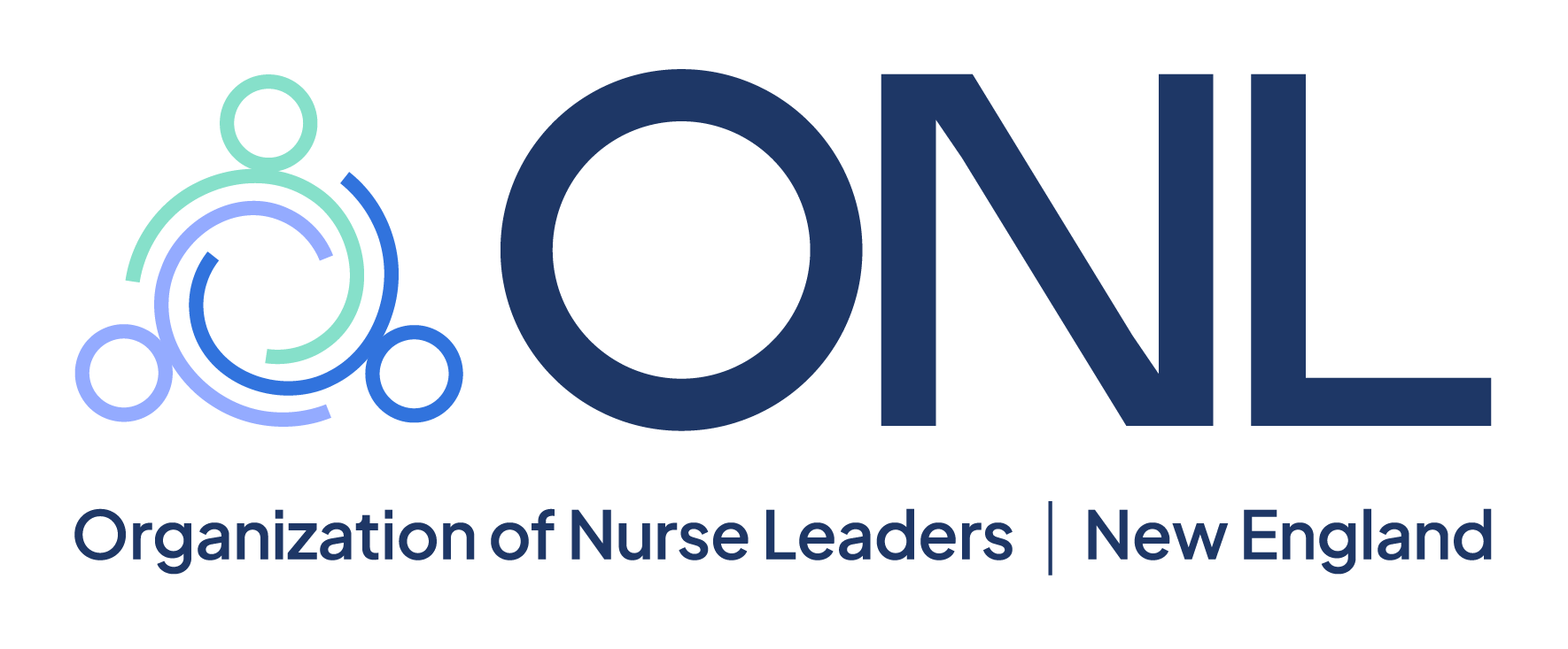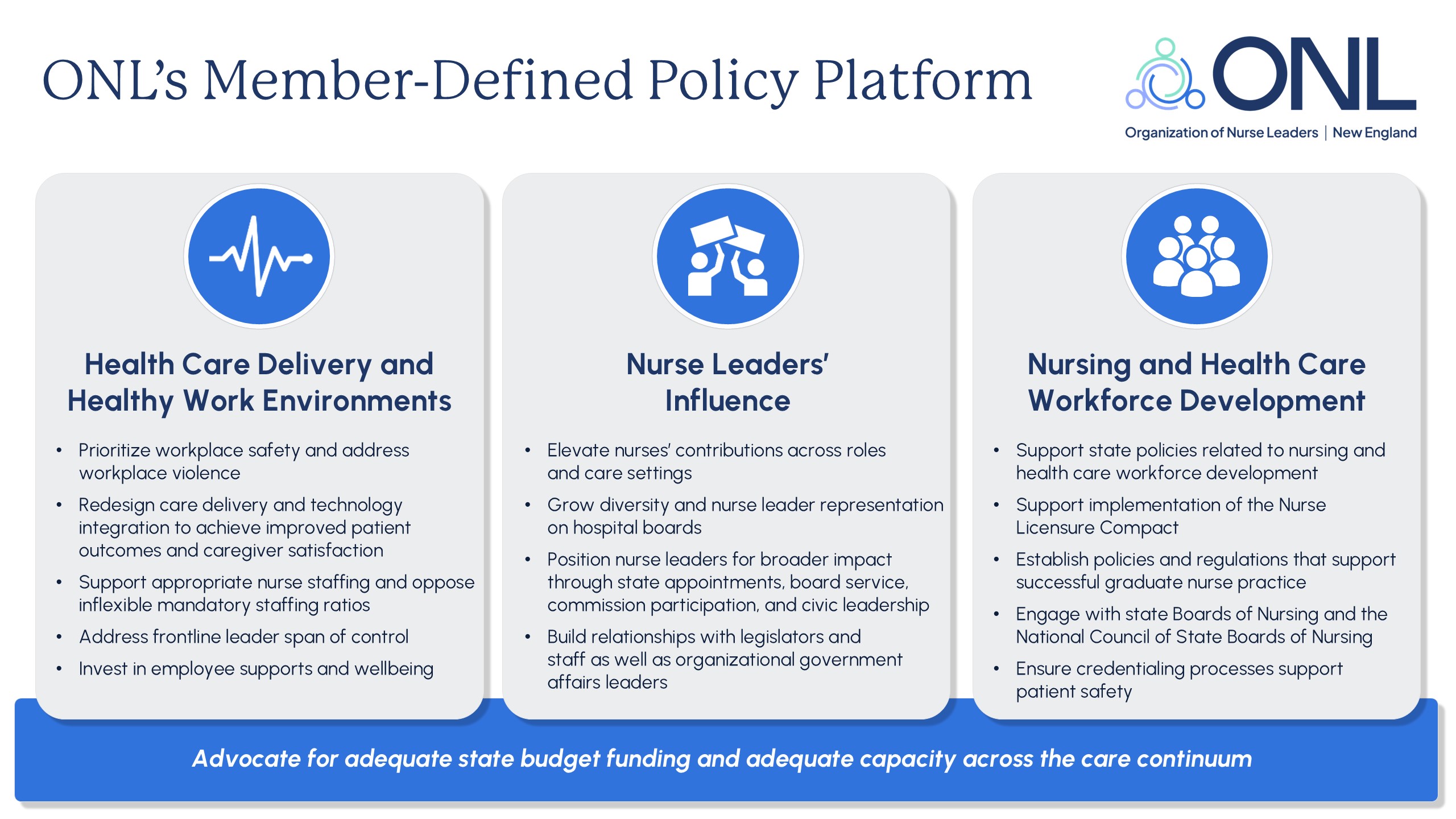Public Policy & Advocacy: Empowering Nurse Leaders to Engage and Influence
Nurses are leaders, and nurses have unique skills and perspective to share. Nurses sharing their perspective and being represented on community boards, healthcare organization boards, and in elected office is good for our profession, for patients, and for our communities.
ONL works with our members to identify key issues at the regional, state, and local levels, provide viable solutions, and influence and build buy-in with key stakeholders and decision-makers. We do this through grass-roots advocacy as well as through strategic partnerships and interactions with key policy leaders, legislators, and other nursing and healthcare organizations and associations.
ONL's Member-Defined Policy Platform
ONL's Member-Defined Policy Platform guides our work to influence policy that impacts nursing practice. This platform was refreshed in fall 2024 based on member feedback collected via survey with guidance from ONL's Government Affairs Committee and our Board of Directors. Our 2025 Policy Priorities are organized into three pillars: Health Care Delivery and Healthy Work Environments, Nurse Leader' Influence, and Nursing and Health Care Workforce Development.
|
Ways You Can Get Involved
Advocacy takes many different forms and requires engagement and persistence. Change is possible when we contribute to the dialogue. Click the button to learn more about ways you can get involved today to help amplify the voice and influence of nurses and nurse leaders on public policy.
ONL's Role in Advocacy
Empowering Nurse Leaders to Engage and Influence and Amplifying Their Voices
|
ONL helps elevate and amplify nurse leaders' voices and empowers nurse leaders to grow their influence and engage to impact policy at the regional, state, and local levels. ONL also serves as a collective voice of nurse leaders in the region and as a centralized hub focused on sharing information to support advocacy throughout our region on issues impacting nursing practice and the health of our communities. Our role is to support member advocacy at the organizational, local/community, and state levels, while AONL supports these efforts at the federal level.
Learn more about ONL's approach to advancing state policy in the article, "Advancing State Policy through Nurse Leader Influence: Exemplars from a Regional Nursing Organization in New England," published in Nurse Leader, Vol. 22, Issue 6.
|

|
How We Help Nurse Leaders Grow Their Influence and Engage to Impact Policy
Whether you are already passionate about public policy or just beginning to explore a curiosity for this work, ONL is here to help and to support you iinfluencing policy that impacts nursing practice.
We support nurse leaders in their efforts to influence public policy in a number of ways:
- Sharing context and background on policy topics
- Providing coaching for nurse leaders preparing for meetings with legislators or for hearings
- Offering talking points and reference material that may be useful in policy discussions
- Helping leaders write or edit written testimony or prepare for media events
- Facilitating connections and relationships that may help to advance the work
- Leveraging our multi-state structure as an asset for sharing lessons learned and insights in policy discussions so that nurse leaders throughout the region can benefit from the experiences of their peers in different states
ONL Government Affairs Committee
ONL's Government Affairs Committee is open to all members who wish to participate. The aims of the committee are to share information, provide exposure to policy happenings, and facilitate collaboration between members on key policy topics. If you are interested in joining the committee, please email Ashley Waddell.
ONL Government Affairs Committee State Representatives
|

Jennifer Boutelle
MSN, RN, NE-BC
CT Representative
|

Amanda Ford
MSN, MBA, RN, CMGT-BC
MA Representative
|

Ara Millette
MBA, DNP, RN, NE-BC
RI Representative
|

Helene Thibodeau
DNP, RN, CCRN, NEA-BC
NH Representative
|

Carol Conroy
DNP, RN, FAAN
VT Representative
|
Addressing Key Policy Issues
ONL strives to support our community of nurse leaders with responsiveness and action on the key issues impacting nursing practice today. Current key issues include:
|







